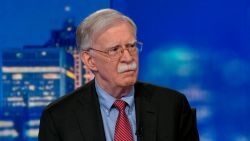President Joe Biden formally announced his decision to end America’s longest war on Wednesday, deeming the prolonged and intractable conflict in Afghanistan no longer aligned with American priorities.
Biden said he would withdraw US troops from Afghanistan before September 11, the 20th anniversary of the terrorist attacks on the World Trade Center and the Pentagon that launched the war in the first place.
Those origins had long given way to other objectives, and Biden declared Wednesday that no amount of time or money could solve the problems his three predecessors had tried and failed to fix.
“War in Afghanistan was never meant to be a multigenerational undertaking,” Biden said during his remarks from the White House Treaty Room, the same location from which President George W. Bush had announced the war was beginning in October 2001.
“We were attacked. We went to war with clear goals. We achieved those objectives,” Biden went on. “Bin Laden is dead and al Qaeda is degraded in Afghanistan and it’s time to end the forever war.”
It was a decisive moment for a President not yet 100 days into the job. Biden has spent months weighing his decision, and he determined a war in Afghanistan that has killed some 2,300 US troops and cost more than $2 trillion no longer fit within the pressing foreign policy concerns of 2021.
The deadline Biden has set is absolute, with no potential for extension based on worsening conditions on the ground. Officials said that after two decades of war, it was clear to the President that throwing more time and money at Afghanistan’s problems wasn’t going to work, even as senior military and national security advisers cautioned against a full withdrawal.
“We cannot continue the cycle of extending or expanding our military presence in Afghanistan hoping to create the ideal conditions for our withdrawal, expecting a different result,” Biden said.
“I am now the fourth American president to preside over an American troop presence in Afghanistan. Two Republicans. Two Democrats,” he went on. “I will not pass this responsibility to a fifth.”
Biden said the withdrawal will begin on May 1, in line with an agreement President Donald Trump’s administration made with the Taliban. Some US troops will remain to protect American diplomats, though officials have declined to provide a precise number.
Biden said American diplomatic and humanitarian efforts would continue in Afghanistan and that the US would support peace efforts between the Afghan government and the Taliban. But he was unequivocal that two decades after it began, the Afghanistan War is ending.
“It is time to end America’s longest war. It is time for American troops to come home,” he said in his speech.
Afterward, as he was visiting the section of Arlington National Cemetery where war dead from Afghanistan are buried, Biden was asked whether his decision had been hard to make.
“No, it wasn’t,” he said. “To me it was absolutely clear.”
A deliberative process
Both of Biden’s most recent predecessors sought to end the war in Afghanistan, only to be drawn back in by devolving security and attempts to prop up the government. Biden made a different calculation that the US and the world must simply move on.
The White House selected the Treaty Room specifically to provide a bookend to the two-decade-long conflict, which began before some of the Americans currently deployed in Afghanistan were born. Biden said he had spoken with Bush on Tuesday ahead of announcing his decision to withdraw troops.
“While he and I have had many disagreements over policy throughout the years, we are absolutely united in our respect and support for the valor, courage and integrity of the women and men of the United States forces who’ve served,” Biden said.
He also spoke with Obama, with whom he sometimes disagreed over Afghanistan policy when serving as vice president. In a statement, Obama said Biden had made the right decision.
“After nearly two decades of putting our troops in harm’s way, it is time to recognize that we have accomplished all that we can militarily, and that it’s time to bring our remaining troops home,” he wrote.
After decades of Afghanistan-focused national security meetings and decisions, Biden’s foreign policy priorities now lie elsewhere: in Asia, where he hopes to compete with China, and in Russia, whose President he spoke with Tuesday and proposed an upcoming summit.
“We went to Afghanistan because of a horrific attack that happened 20 years ago. That cannot explain why we should remain there in 2021,” Biden said. “Rather than return to war with the Taliban, we have to focus on the challenges that are in front of us.”
Still, as Biden was making his decision, the prospect of the Taliban returning to power and potentially rolling back gains on security, democracy and women’s rights provided a stark counterargument to an immediate US withdrawal.
Deliberations stretched longer than some US officials had expected, even as Biden signaled repeatedly that a May 1 deadline for full withdrawal was nearly impossible to meet. Hoping to provide space for him to make an informed final decision that he wouldn’t come to regret, officials sought to avoid pressuring a President known for blowing past deadlines. Top-level meetings were convened at an unusually high rate.
Starting in February, officials undertook a review of “genuine, realistic options” for Afghanistan, according to an official, mindful of Biden’s instructions not to “sugarcoat” the likely outcomes. Heavy consultations between Cabinet members and foreign partners ensued.
During deliberations with senior national security and military officials, Biden chafed at suggestions that US troops should remain in Afghanistan for much longer, according to people familiar with the matter, reminding his advisers that – like his two predecessors – he promised voters he would end the country’s longest war.
There was not unanimous consent among his team. Among those advocating against a withdrawal, Gen. Mark Milley, the chairman of the Joint Chiefs of Staff, had been among the most ardent, suggesting earlier in the deliberations that pulling American troops from Afghanistan could cause the government in Kabul to collapse and prompt backsliding in women’s rights, according to people familiar with the conversations.
An annual US intelligence community’s assessment released Tuesday was grim on the outlook for Afghanistan, concluding that prospects for a peace deal between the Taliban and the Afghan government “remain low during the next year.”
“The Taliban is likely to make gains on the battlefield, and the Afghan Government will struggle to hold the Taliban at bay if the coalition withdraws support,” the assessment said.
On Wednesday, Biden offered his rebuttal to the “many who will loudly insist that diplomacy cannot succeed without a robust US military presence to stand as leverage.”
“We gave that argument a decade. It’s never proved effective. Not when we had 98,000 troops in Afghanistan, and not when we’re down to a few thousand,” Biden said. “Our diplomacy does not hinge on having boots in harm’s way, US boots on the ground. We have to change that thinking. American troops shouldn’t be used as a bargaining chip between warring parties in other countries.”
A long history with the conflict
Officials involved in the process interpreted the lengthy decision-making timeline as a sign of the President’s genuine anguish about a path forward, sources said. Biden, meanwhile, made clear he didn’t want to be rushed.
In reality, Biden has been thinking about this issue for nearly as long as the war itself, having traveled to the region as a leader on the Senate Foreign Relations Committee and as an internal advocate – at first ignored – of drawing down troops during the Obama administration.
On the day in 2001 that Bush addressed the nation from the Treaty Room, Biden appeared on CNN a few hours later from his home in Wilmington, Delaware. Then the chairman of the Foreign Relations Committee, Biden told Larry King he believed the Taliban would be quickly defeated.
Biden's First 100 Days
“There is no doubt in my mind the Taliban is done and the American people are going to learn about that and the world is going to learn about that in a matter of weeks, I predict,” he said in the interview – a projection that, 20 years later, appears misguided as his administration works to urge peace talks between the Taliban, who control large swaths of Afghanistan, and the Afghan government.
Still, in the interview, Biden acknowledged the lengthy road ahead – even though he could not have imagined he would be the president two decades later deciding to pull troops out.
“The hard part is going to be putting it together,” he said then. “The easiest part is going to be taking it down.”
Over the ensuing years, Biden would travel to Afghanistan as part of congressional delegations and grill military leaders appearing before his committee.
By the time he became vice president, Biden had adopted a skeptical view toward a continued large presence in the country. Some confidants attributed that to worsening conditions and the growing intractability of the political situation; others said his son Beau’s deployment to Iraq as a member of the Delaware Army National Guard lent him new insight into the sacrifices of military families.
Biden evoked his son in his speech on Wednesday.
“I’m the first president in 40 years who knows what it means to have a child serving in a war zone, and throughout this process, my North Star has been remembering what it was like when my late son, Beau, was deployed to Iraq, how proud he was to serve his country, how insistent he was to deploy with his unit and the impact it had on him and all of us at home,” he said.
This story has been updated with more from the President’s speech on Wednesday.
CNN’s Betsy Klein contributed to this report.



















